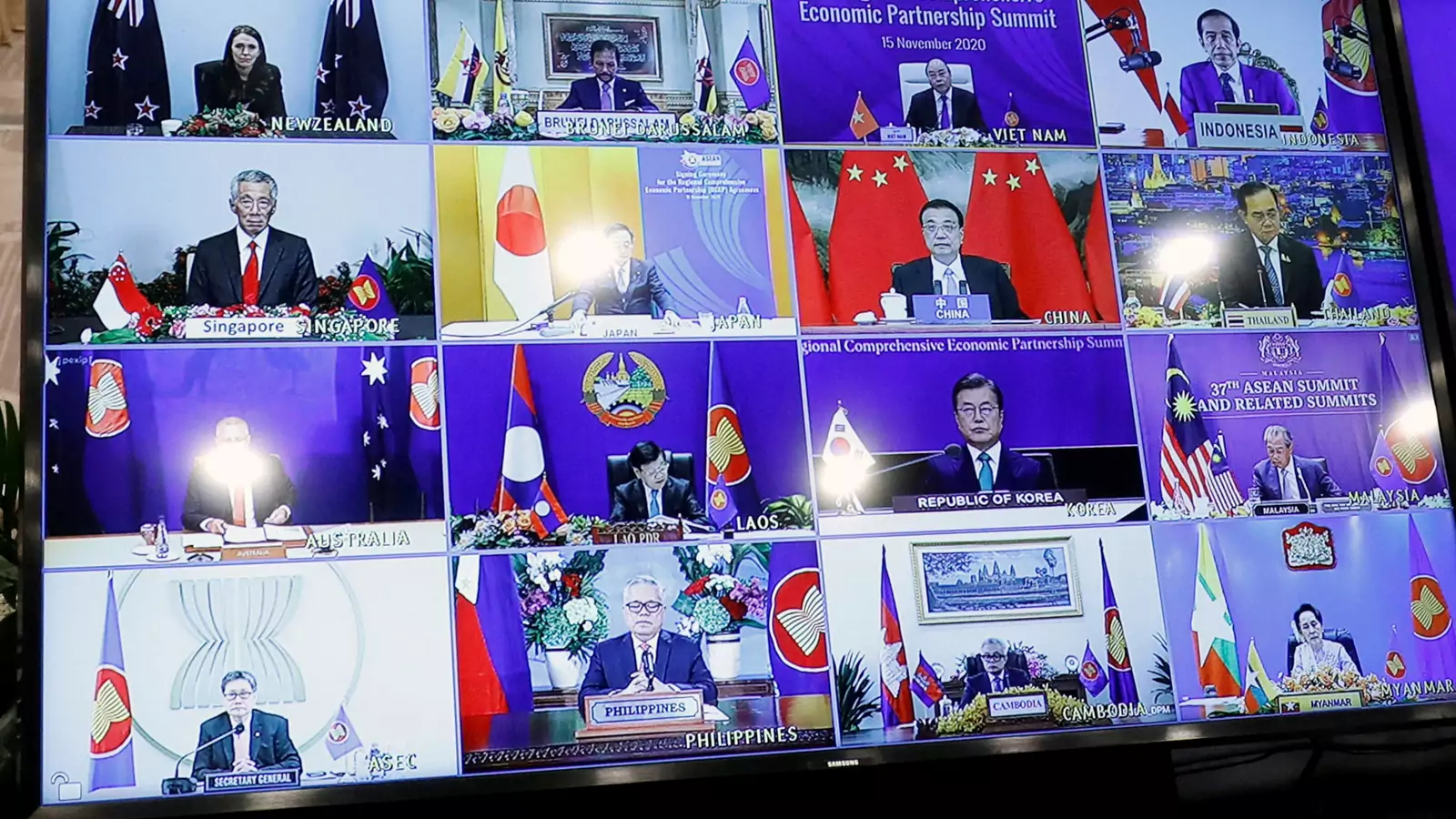by Joshua Kurlantzick

Over the weekend, fifteen Asian states, including China, signed the Regional Comprehensive Economic Partnership (RCEP). The deal, midwifed by China and promoted for years by Beijing, includes both close Chinese partners like Cambodia as well as countries with cold relations with Beijing, like Australia and Japan. Overall, RCEP will create the most populous trade area in the world, and it joins together several of the largest economies in the world, like China, Japan, and South Korea. It provides a major signal to investors that the region is still committed to multilateral trade integration.
In addition, with the United States absent from regional economic integration for the past four years, after the Trump administration pulled out of the Trans-Pacific Partnership (TPP) early in its term, RCEP is a publicity coup for Beijing. And China desperately needed such a coup: across the region, countries still remain angry at how Beijing concealed the initial COVID-19 outbreak, and are also angry at how China has continued to push its territorial claims even as the pandemic hobbles many regional states.
Although Chinese leaders do not openly cite RCEP as a victory over U.S. leadership in Asia, the signing does solidify the idea that Beijing is driving regional economic flows at a time when, despite the trade slowdown due to the novel coronavirus, most regional states are still focused on multilateral economic integration. China already is the top trading partner of many states in the region and a primary donor to some poorer states like Cambodia. It now can say that it has become the leading protector of regional free trade, as the United States has not only pulled out of TPP but also imposed tough new trade measures on states like Thailand and China and begun investigating other regional partners like Vietnam and Indonesia. What's more, some of the United States' closest partners, like Japan and Australia, joined RCEP.
Asia Unbound
In addition, ASEAN states can claim a victory. ASEAN leaders surely will note that they helped bring the deal together, a win for their strategy of mediating between the region's major powers.
To be sure, RCEP is not a complete free trade agreement. It codifies the removal of tariffs mostly on items that are already exempted due to other free trade deals, and it has a large loophole under which countries can maintain tariffs in a broad range of sectors; it will not result in some massive increase in intra-regional trade in the short term. (One analysis by the Peterson Institute suggests RCEP would boost global trade by $500 billion in the next ten years.) Still, its provisions should help multinationals from Northeast Asia build more seamless supply chains throughout the RCEP bloc, and will generally link Northeast and Southeast Asian economies closer together. This should help Southeast Asian states like Vietnam and Thailand and Malaysia that already have attracted growing investment as multinationals shift some operations out of China due to fears about the U.S.-China trade battle and Beijing's increasingly onerous restrictions on some foreign companies.
The incoming Biden administration may reduce or eliminate some of those U.S. efforts to pressure regional partners on trade issues, so as not to alienate them while the United States continues to confront China on a range of issues. But even with a Biden administration that might be more committed to bringing the United States back into regional trade integration, it will be difficult for the new administration to actually do so. Although polls often show that a majority of Americans have positive views of the effects of free trade, there are significant constituencies within both the Democratic Party and the Republican Party who have soured on trade; given these obstacles, and the fact that the Biden administration will be focused primarily on the novel coronavirus, it is hard to imagine the Biden White House pushing hard to have the United States rejoin agreements like TPP.
No comments:
Post a Comment